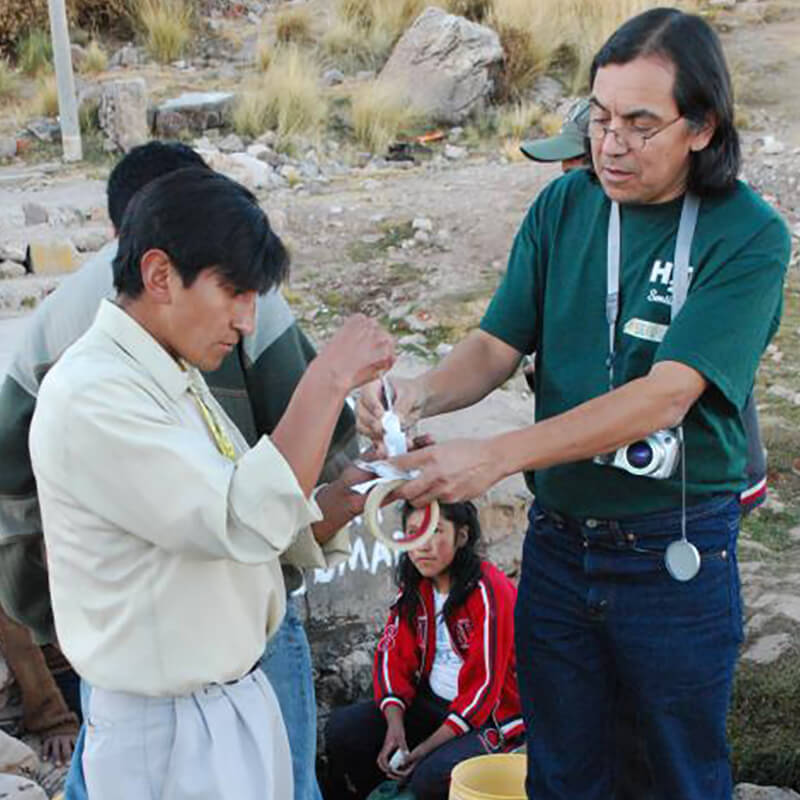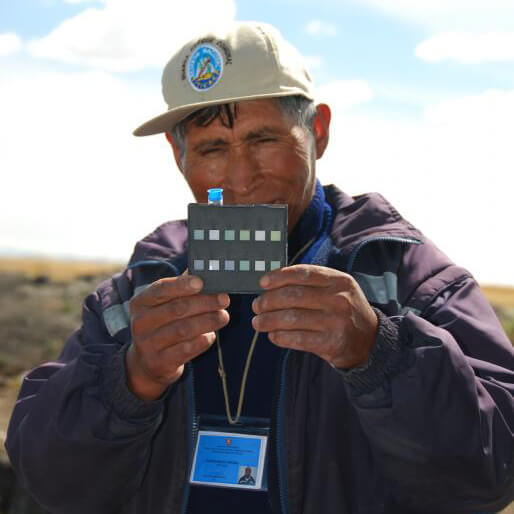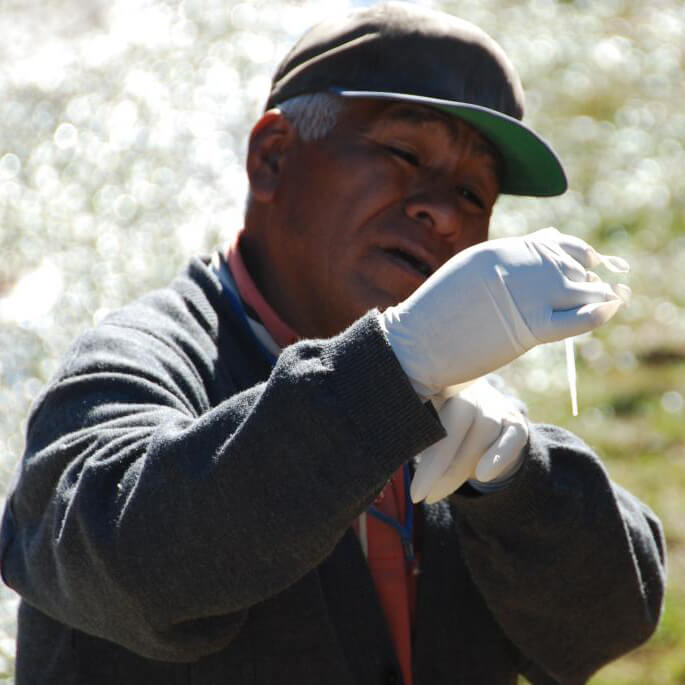Video spotlight on AAA water project talk
Today, many rural communities’ traditional livelihoods in the Lake Titicaca basin are threatened by water scarcity and pollution from mines, urban settlements, and solid waste. Most people today in the lake basin show awareness about pollution and the lake’s much-diminished fisheries, but until this project was initiated, no information about water quality and conservation had been available to the public.
The "Suma Quta" Clean Water Project
Today, many rural communities’ traditional livelihoods in the Lake Titicaca basin are threatened by water scarcity and pollution from mines, urban settlements, and solid waste. Most people today in the lake basin show awareness about pollution and the lake’s much-diminished fisheries, but until this project was initiated, no information about water quality and conservation had been available to the public.
The Suma Quta (pronounced “Sue-muh koh-tuh”) Project began in 2009 and combines the efforts of numerous Peru- and U.S.-based nonprofits and universities, as well as regional government agencies in Puno, Peru, in developing public information about water quality and appropriate technologies and best practices for communities that have water sources that are risky or dangerous for human consumption




